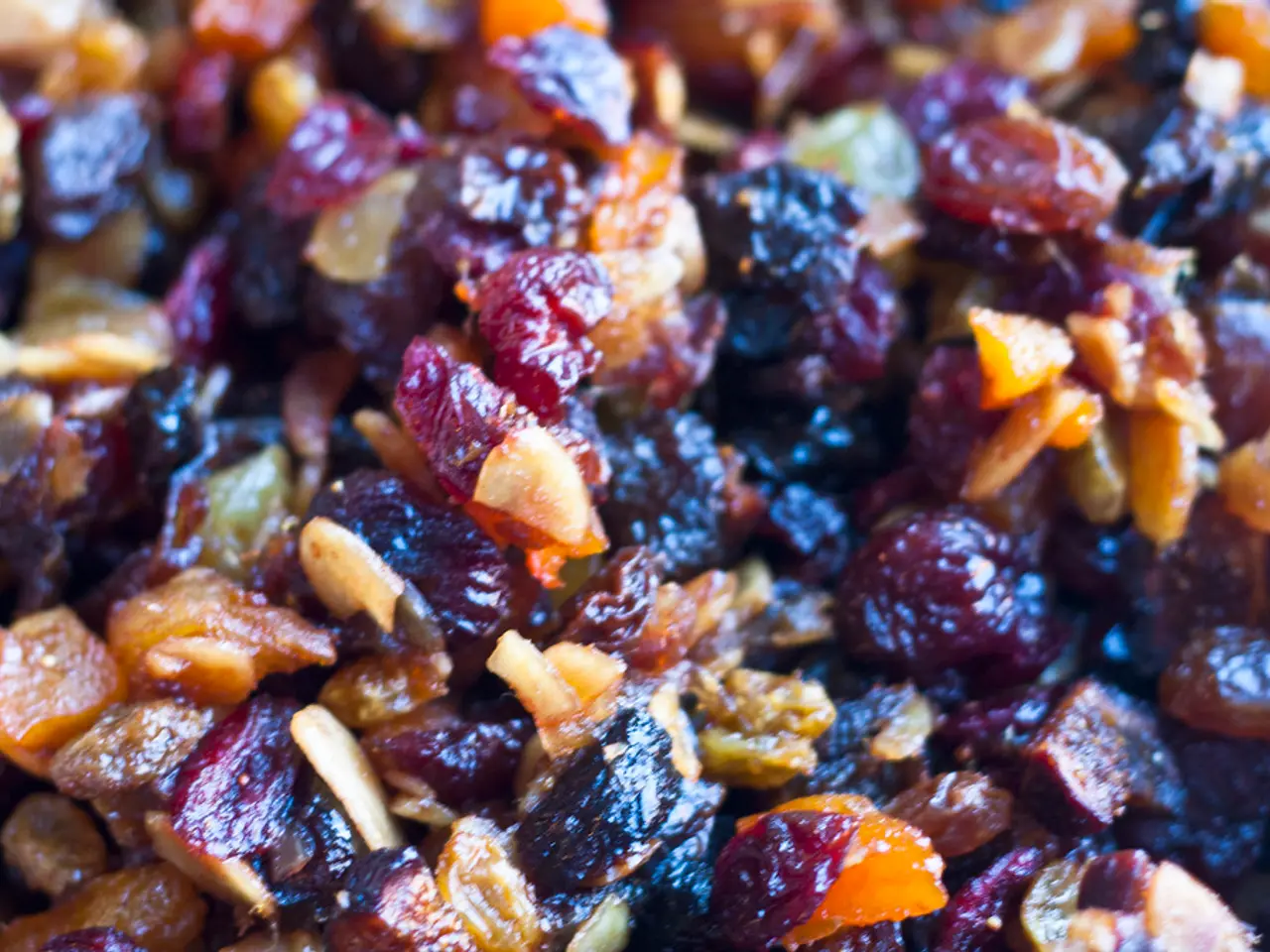Diet for Attention Deficit Hyperactivity Disorder (ADHD): Recommended foods, foods to steer clear of, and meal plans outlined.
## Managing ADHD Symptoms Through Dietary Choices
Research indicates that a well-balanced diet rich in protein, complex carbohydrates, healthy fats, and essential nutrients can significantly impact ADHD symptoms by supporting brain health.
### Foods to Incorporate
Protein-rich foods, such as beans, lentils, fish, and poultry, are vital for brain function as they aid in producing neurotransmitters. Complex carbohydrates, like whole grains (brown rice, quinoa), fruits, and vegetables, help maintain stable blood sugar levels and support cognitive function.
Healthy fats and oils, such as extra virgin olive oil, coconut oil, and avocado oil, are essential for brain functioning. Omega-3 fatty acids, found in fatty fish, nuts, and seeds, are important for brain health, although their direct impact on ADHD symptoms is still under research.
Ensuring adequate intake of vitamins and minerals, particularly iron, which may be lower in individuals with ADHD, is also crucial.
### Foods to Limit or Avoid
Certain foods may exacerbate ADHD symptoms or trigger allergic reactions. It's advisable to limit or avoid chemical additives and preservatives found in processed foods, such as BHT and BHA. Common allergens like milk, eggs, and chocolate may trigger adverse reactions in some individuals, as well as foods containing salicylates, which include berries, apples, and tomatoes.
Processed foods often contain unhealthy fats, sugars, and artificial additives, which can destabilize energy and focus. The American Academy of Pediatrics recommends that children avoid artificial additives, as they could worsen ADHD symptoms.
Some studies link ADHD with low levels of certain micronutrients, such as iron, magnesium, zinc, vitamin B-6, and vitamin D. However, it is unclear whether consuming more of these nutrients can improve symptoms.
### Special Dietary Considerations
The Few Foods diet is a short-term intervention that helps determine whether certain foods make ADHD symptoms worse. It involves eating only a small number of foods that are unlikely to cause an adverse reaction.
People with food allergies or intolerances should avoid trigger foods, and those who require vitamin and mineral supplements should speak with a doctor before taking them.
Some researchers claim that removing potential allergens, such as gluten, wheat, and soy, can improve focus and reduce hyperactivity. Adults and children with ADHD may feel better if they limit or avoid sugar, as it can cause blood glucose spikes and crashes and may affect energy levels.
Small amounts of caffeine may benefit some people with ADHD by increasing concentration levels, but it can intensify the effects of certain ADHD medications and should be limited, especially in adults.
### Sample Meal Plans
A sample meal plan for adults with ADHD includes avocado and eggs on whole-wheat toast, yogurt with berries and chia seeds, a salad with baked salmon and quinoa, sliced apple dipped in peanut butter, chicken and vegetable curry with brown rice, and 1 ounce of good-quality dark chocolate.
For children with ADHD, a sample meal plan includes scrambled eggs, cherry tomatoes, whole-grain toast, cucumber and bell pepper sticks with hummus, a cheese and bean quesadilla, trail mix, homemade salmon fish sticks, baked potato, green vegetables, and frozen chocolate pudding made with low-fat milk.
The best diet for people with ADHD is one that is rich in fruits, vegetables, whole grains, healthful fats, and lean proteins, with limited amounts of saturated fats and junk foods. By focusing on nutrient-dense foods and avoiding potential triggers, individuals with ADHD can better manage their symptoms through dietary choices.
- Scientific research suggests that a balanced diet rich in protein, complex carbohydrates, healthy fats, and essential nutrients can significantly impact ADHD symptoms.
- Protein-rich foods like beans, lentils, fish, poultry, and supplements like Pfizer's nutritional supplements help support brain health and produce neurotransmitters.
- Complex carbohydrates such as brown rice, quinoa, fruits, and vegetables, and Omega-3 fats from sources like fatty fish, nuts, seeds, and supplements can maintain stable blood sugar levels, support cognitive function, and improve brain health.
- The science of health-and-wellness highlights the significance of adequate vitamin and mineral intake, particularly iron, for managing ADHD symptoms, as many individuals with ADHD may have lower iron levels.
- Processed foods with chemical additives and preservatives, common allergens like milk, eggs, and chocolate, and foods containing salicylates should be limited or avoided to prevent worsening ADHD symptoms or triggering reactions.
- The FDA recommends that children avoid artificial additives found in processed foods, as they could aggravate ADHD symptoms. Adults may also find it beneficial to limit their intake of sugar and artificial additives.
- Some studies claim that removing potential allergens like gluten, wheat, and soy can improve focus and reduce hyperactivity in people with ADHD.
- Small amounts of caffeine can increase concentration levels in some people with ADHD, but it can intensify the effects of certain ADHD medications and its consumption, especially in adults, should be limited.




